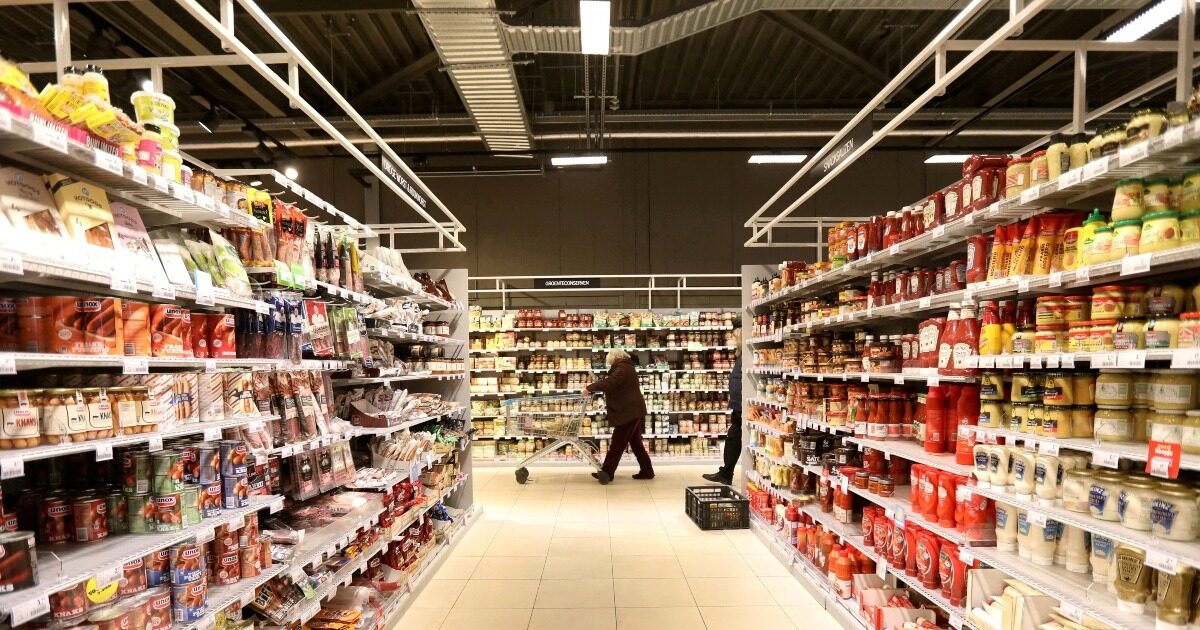Almost every month, Cihan Citak, a food and beverage company executive in Turkeytakes his passport, starts in his car from Istanbul and heads towards Alexandroupolis in Greece.
Four hours later, he walks the aisles of a supermarket in Alexandroupoli, where he fills his trolley with olive oil, meat, cheese and chocolates. At the checkout, the bill leaves no room for doubt: as he says, his shopping costs an average of three times less than in Istanbul, Turkey, writes Bloomberg.
Alexandroupolis, new “temple” of cheap shopping
On the shelves, the price differences can be seen directly on the labels. In Alexandroupoli, a liter of olive oil sold for around 10 euros costs twice as much in Turkey, according to Cihan Citak. Minced meat is cheaper than in CarrefourSA stores in Turkey, beef sausages are sold for almost half the price, while products such as gouda cheese or Kinder chocolates cost only a fraction of their price on the other side of the border.
This “shopping tourism” is no longer a fringe phenomenon. According to the Turkish Statistical Institute, 6% of Turks who crossed the border into Greece in the first nine months of the year did so mainly for shopping, a record percentage since 2012. “The Turks have overrun Alexandroupolis,” jokes 48-year-old Chitak, with a mixture of humor and fatalism. “One can see hundreds of people inside the store. Then they go to the restaurant and discuss what they bought and how much they paid.”
Videos of Greek supermarkets are piling up on YouTube and TikTok: close-ups of labels, comparisons with Turkish prices, lists of “must-see” products. Each video gathers thousands of views and fuels even more the “craze” of Turkish strollers on Greek shelves.
When monetary policy changes consumption habits
Just a few years ago, the reverse was the case: Greeks were flocking to Turkey to take advantage of the lira, which had been brought to its knees by the unorthodox monetary policy of Recep Tayyip Erdogan, who championed low interest rates despite soaring inflation. The euro then had enormous purchasing power in Turkish shopping centers.
From the middle of 2023, however, Ankara changed course. President Erdogan brought Mehmet Simsek, a former Merrill Lynch bond strategist, back to the finance ministry and accepted a more orthodox management: a big interest rate hike, stabilization of the Turkish lira and slightly more subdued inflation. The real exchange rate of the pound has strengthened, food inflation has slowed – from around 54% to 35% – but the price shock remains hard on households.
According to the statistical institute, the “basket” of food and non-alcoholic beverages increased by 144% from Simsek taking office until October. The Central Bank predicts that inflation will remain above 30% at the end of the year, before easing – they hope – by 2026.
For consumers, the reality is one: even if the rate of increases is slowing, the bill continues to rise. For the opposition, seeing families crossing the border to buy pasta and cheese is a symbol of a struggling economy. “After 23 years, this is the state that Erdogan is proud of,” CHP leader Ozgur Ozel said on Tuesday, accusing the government of forcing Turks to shop abroad.
Buses full of customers and shopping bags
Travel agencies quickly recognized the opportunity. Just as Greek travel agents used to organize itineraries to Turkey, offices in Istanbul, Canakale or Bursa now organize same-day trips to Alexandroupolis. For around 50 euros – bus ticket and exit fee included – customers can go round the big Greek chains like Lidl, Jumbo or Metro and come back with bags full of produce.
“People are buying everything, even meat and cheese,” explains Sekzin Ineli, a partner at the Atom Tur travel agency in Istanbul. Many take the opportunity to also eat fish or seafood, which is considered more affordable than in Turkey.
According to the company’s schedule, the buses leave Istanbul on Friday night, arrive early in the morning in Alexandroupolis, give customers about three and a half hours for shopping, and then offer a short tour of the city before returning.
In Bursa, the owner of the Gezihane travel agency, Muhammed Tamdeger, describes similar scenes: pasta, yogurt, vegetables and branded products fill the trunks. “Cheap and good quality,” he sums up, echoing what most participants are saying.
Hours in line to save supermarket costs
For Cihan Citak, these comings and goings are here to stay. As long as the pound remains strong enough to make Greek prices look more attractive, he will continue to fill his trunk in Alexandroupolis instead of Istanbul. But there is another side: the endless queues at the border post. “I was there a few days ago,” he says. “On the way back, passport control took hours, that’s how long the queue was.”
Between the queues and the overflowing trolleys, these day trips tell of a Turkey where to shop at “normal” prices you have to leave the country – and a border Greece that suddenly turns into a haven of purchasing power for its neighbors.
